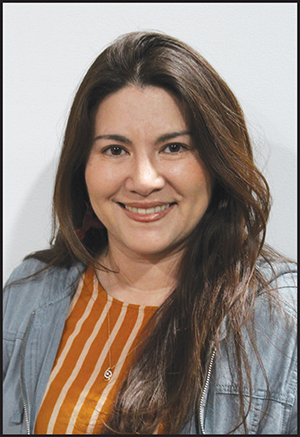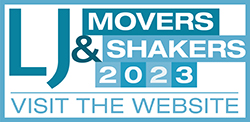Sara Elisa Proaño-Motta | Movers & Shakers 2023—Community Builders
When Sara Elisa Proaño-Motta arrived in Michigan in 2008, she worked as a translator and interpreter serving communities that faced barriers to services or resources. “This led me to recognize the library as one of the most important resources for case managers, advocates, and community navigators,” recalls the Ecuadorian native. “The work humbled me, informing my understanding of the many cultures represented in Kent County.”
 |
CURRENT POSITIONCommunity Engagement Manager, Kent District Library, MI DEGREEPsy.D. in Clinical Psychology, Universidad Cristiana Latinoamericana, Quito, Ecuador FOLLOWPhoto by Kevin Kammeraad |
Barrier Breaker
When Sara Elisa Proaño-Motta arrived in Michigan in 2008, she worked as a translator and interpreter serving communities that faced barriers to services or resources. “This led me to recognize the library as one of the most important resources for case managers, advocates, and community navigators,” recalls the Ecuadorian native. “The work humbled me, informing my understanding of the many cultures represented in Kent County.”
These days, Proaño-Motta takes the Kent District Library (KDL) beyond its walls, designing services to fit the communities she represents and serves. Poverty is often a common denominator, and a barrier to individuals and families being able to access KDL services. To help address root causes, she has implemented financial stabilization initiatives, including programs through which heads of household can receive marketable-skills training. To combat literacy barriers, Proaño-Motta helmed several key partnerships, such as collaborating with Puertas Abiertas, an organization committed to responding to the needs of immigrant women who have survived violence or are dealing with trauma, and introducing KDL Free Libraries into The Rapid bus station in Grand Rapids and at Gerald R. Ford International Airport.
When designing programs for the KDL system, Proaño-Motta identifies prioritized groups based on five barriers they may face: poverty, discrimination, health issues, special abilities or disabilities, and violence or trauma. “Placing the weight on the barriers instead of on identities is important because that helps us move past misconceptions and focus on common values,” she says. “Finally, if we are being honest, almost all of us are part of one, or more, groups facing those barriers, or we love someone who is. By focusing in this way, we are striving to leave behind they, replacing that word with us.”
RELATED
ALREADY A SUBSCRIBER? LOG IN
We are currently offering this content for free. Sign up now to activate your personal profile, where you can save articles for future viewing










Add Comment :-
Comment Policy:
Comment should not be empty !!!